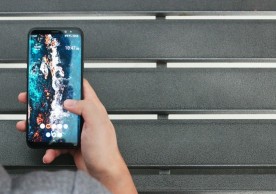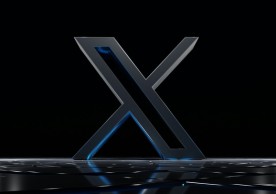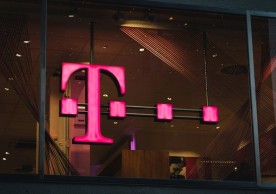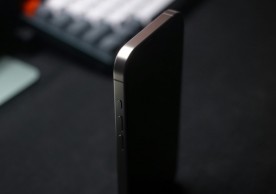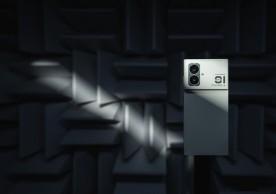How Apple's Smart Home Strategy Is Greatly Challenged By Amazon Echo's Widening Lead In Smart Household Market [VIDEO]
How Apple's Smart Home Strategy Is Greatly Challenged By Amazon Echo's Widening Lead In Smart Household Market [VIDEO]
Pia MerciApple's Smart Home strategy has been threatened by Amazon's combination of the Alexa voice-controlled digital assistant and the Echo speaker system.
Amazon's Alexa-Powered Echo Speaker
Amazon has definitely delivered well on their promise of easy-to-use technology, enabling its users to control home gadgets by using natural language voice commands. This is especially with the help of its Alexa powered Echo speaker system.
Amazon's success reportedly challenges Apple and Google's Alphabet for the top spot on the market for household connection. This close competition is apparently following the typical dynamic in of the tech industry.
As per Fortune, Amazon has chosen to go with an open-system approach. With this strategy, it allows quick development of multiple features. But for Apple, they have reportedly chosen a slower approach wherein control maintenance over the technology is the sole focus to assure ease-of-use and security.
Additionally, Amazon's "connected home" niche is to own its customer interactions, especially shopping online, without an Apple phone or Google Web browser as a channel. On the other hand, Apple struggles to keep the iPhone at the center of customer's lives by building the HomeKit whole automation architecture into its smartphone.
More importantly, smart household gadgets that are currently certified to work with Alexa are around 250 devices. ForApple, it has only around 100 certified devices.
How Apple Tries To Maintain Control
Gadget makers must reportedly integrate special chops to work with Apple's system for it to become HomeKit-certified. Apple requires its developers as well to buy particular Wi-Fi and Bluetooth networking chips that reportedly usually cost more than its competitor's products. More so, these devices supposedly have to be manufactured in Apple-certified special facilities.
Another requirement that Apple imposes is that manufacturers have to send product samples to Cupertino for them to be extensively tested by Apple for compatibility. It can take three to five months for this whole certification process to complete. Simultaneously, device makers are not permitted to publiclt claim that they are pursuing HomeKit certification during the certification process.
Open Approach Pursued By Amazon
Unlike Apple, Amazon's Alexa only requires smart home companies to submit their developed software codes to Amazon for reviewing. Considering that this is only a software review and there are no special chips need to be tested for compatibility, this process is way faster and simpler. Those companies that would want to promote their products on Amazon's website are the ones who need to earn the "Works with Alexa" label.
Startups must note that in order for them to get the "Works with Alexa" label, they must have their products physically tested, which can only be done in a third-party lab. Will Apple's slow-to-develop system be able to overcome Amazon's widening lead?
most read
related stories
more stories from News
-
Google-Backed Glance Launches Pilot of Android Lockscreen Platform in US
Check out the latest from Glance! They're piloting their Android Lockscreen Platform in the US. Don't miss it!
ernest hamilton -
X Plans Smart TV App, Promising Immersive Entertainment Experience
Exciting news! X plans to launch a Smart TV app for an immersive entertainment experience. Stay tuned!
ernest hamilton -
T-Mobile Introduces New 5G Internet Plans for Enhanced Home and Travel Connectivity
T-Mobile unveils new 5G internet plans, promising enhanced home and travel connectivity for customers seeking high-speed internet on the go.
ernest hamilton -
Huawei Aims for Global Expansion of HarmonyOS, Rivaling Android and iOS
Huawei sets sights on global expansion with HarmonyOS, aiming to rival Android and iOS in the competitive mobile operating system market.
ernest hamilton -
Apple Releases Third Betas for iOS 17.5 and iPadOS 17.5, Introducing App Ecosystem Changes and New Features
Stay ahead with the latest updates! Apple rolls out third betas for iOS 17.5 and iPadOS 17.5, bringing exciting app ecosystem changes and new features.
ernest hamilton -
Billie Eilish Takes the Stage at 'Fortnite Festival' This Week
Billie Eilish fans, get ready! The iconic singer will be performing live at the Fortnite Festival this week. Don't miss out!
ernest hamilton -
The MIAD 01: Audiophile Brand Moondrop Teases Its First Smartphone
Moondrop, known for audiophile gear, teases its inaugural smartphone, the MIAD 01, promising a unique blend of audio excellence and mobile technology.
ernest hamilton -
Android 15 Could Simplify Notification Channels, Hide Unused Ones
Android 15 aims to streamline notification channels by hiding unused ones, enhancing user experience and decluttering notification settings.
ernest hamilton





